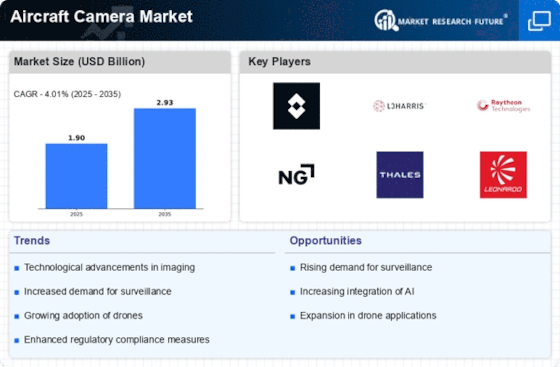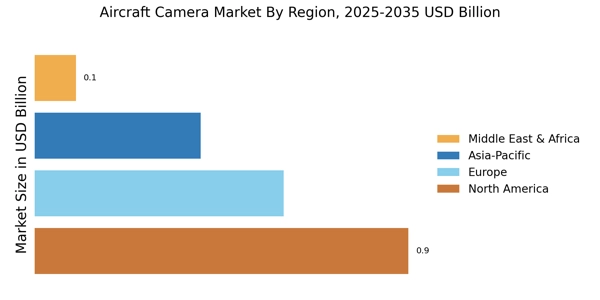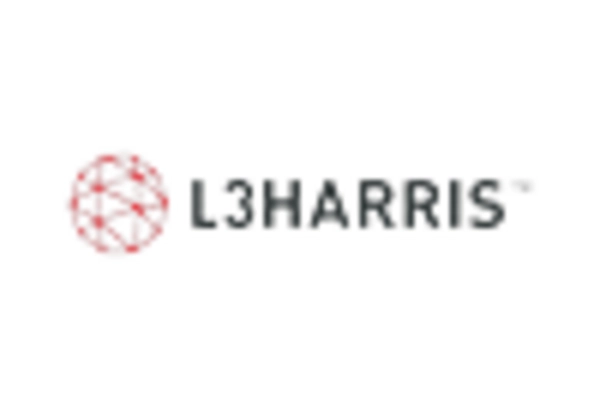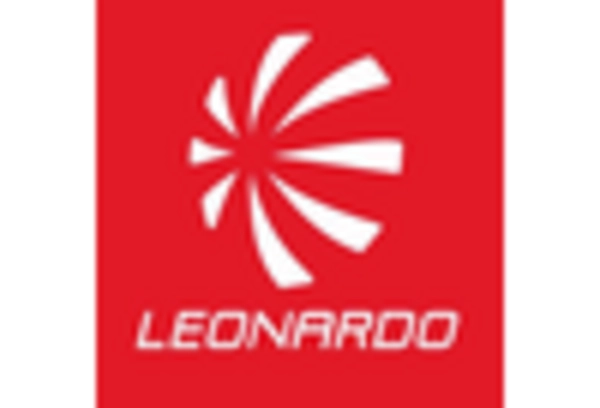Growing Applications in Surveillance
The aircraft camera Market is witnessing a growing demand for surveillance applications across various sectors. With the increasing need for security and monitoring, aircraft cameras are being utilized for border patrol, wildlife monitoring, and disaster management. The integration of these cameras into unmanned aerial vehicles (UAVs) is particularly noteworthy, as it allows for efficient data collection in hard-to-reach areas. Market data suggests that the surveillance segment is expected to account for a significant share of the overall market, potentially reaching 40% by 2026. This trend underscores the importance of aircraft cameras in enhancing situational awareness.
Rising Demand for Aerial Photography
The Aircraft Camera Market is witnessing a rising demand for aerial photography, driven by various sectors such as real estate, agriculture, and environmental monitoring. High-resolution cameras mounted on aircraft provide unique perspectives and detailed imagery that are invaluable for these applications. The market for aerial photography is expected to grow significantly, with estimates suggesting a compound annual growth rate of 5.5% over the next five years. This growth is fueled by the increasing use of aerial imagery for mapping, surveying, and promotional purposes, highlighting the versatility and importance of aircraft cameras in diverse industries.
Technological Innovations in Imaging
The Aircraft Camera Market is experiencing a surge in technological innovations that enhance imaging capabilities. Advanced sensors, high-resolution cameras, and real-time data processing are becoming increasingly prevalent. These innovations not only improve image quality but also enable functionalities such as night vision and thermal imaging. As a result, the demand for sophisticated aircraft cameras is likely to rise, with projections indicating a market growth rate of approximately 5.2% annually over the next five years. This growth is driven by the need for enhanced surveillance and reconnaissance capabilities in both military and commercial aviation sectors.
Regulatory Support for Aviation Safety
The Aircraft Camera Market is benefiting from regulatory support aimed at enhancing aviation safety. Various aviation authorities are mandating the use of advanced camera systems for monitoring and recording flight operations. This regulatory push is likely to drive the adoption of aircraft cameras, as operators seek to comply with safety standards. Furthermore, the implementation of these systems can lead to improved incident investigation processes, thereby fostering a culture of safety within the aviation sector. As regulations evolve, the market for aircraft cameras is expected to expand, with an estimated growth of 6% in the next few years.
Increased Investment in Defense and Security
The Aircraft Camera Market is experiencing increased investment in defense and security applications. Governments worldwide are allocating substantial budgets for upgrading their aerial surveillance capabilities, which includes the procurement of advanced aircraft camera systems. This trend is particularly pronounced in regions with heightened security concerns, where the demand for reliable surveillance technology is paramount. Market analysis indicates that defense spending on aerial reconnaissance is projected to grow by 7% annually, thereby bolstering the aircraft camera market. This investment not only enhances national security but also stimulates technological advancements within the industry.

















